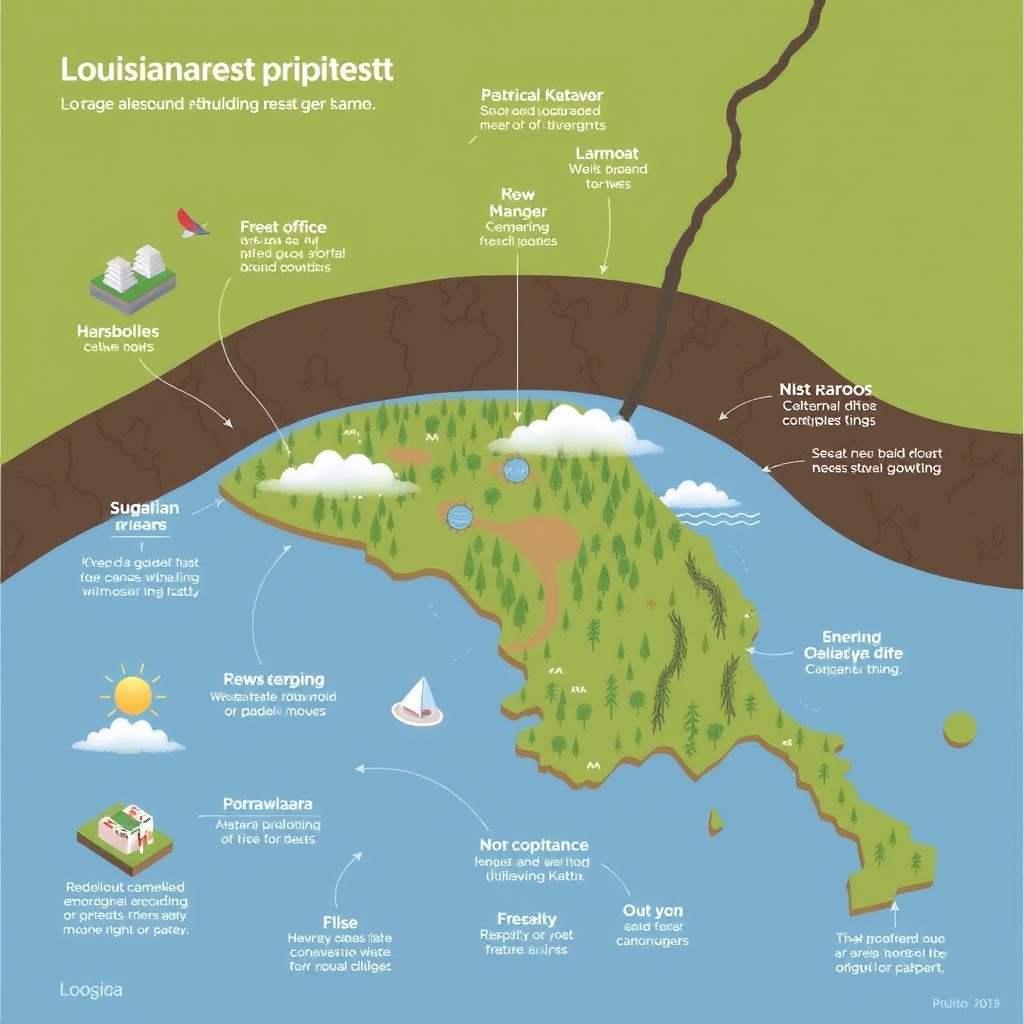Introduction
Twenty years have passed since Hurricane Katrina devastated the Gulf Coast, particularly Louisiana, leaving a trail of destruction and loss in its wake. In the aftermath of the disaster, a concerted effort was made to rebuild and restore the affected areas, with a significant focus on the state's vital wetlands. The wetlands, which provide crucial protection against storms and support a diverse range of wildlife, were identified as a key area for restoration. A $3 billion project was initiated to rebuild these wetlands, inspired by the lessons learned from Katrina. However, in a surprising and disappointing turn of events, Louisiana has decided to cancel this ambitious project. This article will delve into the background of the project, the reasons behind its cancellation, and the potential consequences of this decision.
Background of the Wetlands Rebuilding Project
The $3 billion wetlands rebuilding project was a comprehensive initiative aimed at restoring the wetlands in Plaquemines Parish, Louisiana. The project was designed to not only revitalize the ecosystem but also to provide enhanced protection against future storms. The wetlands in this region are crucial as they act as a natural barrier, reducing the impact of hurricanes and storms on coastal communities. Over the years, these wetlands have been eroded due to a combination of natural and human-induced factors, including sea-level rise, canal dredging, and oil and gas exploration. The project aimed to reverse this trend by implementing a range of measures, including the restoration of degraded habitats, the reintroduction of native species, and the construction of levees and other protective structures.
The project was not just about environmental restoration; it was also seen as a vital component of the state's economic and social recovery. The wetlands support a significant fishing industry, and their restoration was expected to boost local economies and create jobs. Moreover, the project was intended to serve as a model for sustainable development and environmental stewardship, demonstrating how economic growth and environmental protection can go hand in hand.
Reasons Behind the Project's Cancellation
The decision to cancel the $3 billion wetlands rebuilding project has been met with widespread disappointment and criticism. According to reports, the cancellation is attributed to a combination of factors, including funding issues, bureaucratic delays, and shifts in political priorities. The project, which was initially expected to be funded through a mix of federal, state, and private sector contributions, faced significant funding shortfalls. The state of Louisiana, which was expected to contribute a substantial portion of the funds, found itself facing budgetary constraints, making it difficult to allocate the necessary resources.
Additionally, the project was plagued by bureaucratic delays and inefficiencies. The planning and approval process took longer than anticipated, leading to increased costs and a loss of momentum. The project also faced opposition from some local communities and interest groups, who expressed concerns about the potential impact on their livelihoods and the environment.
Potential Consequences of the Cancellation
The cancellation of the $3 billion wetlands rebuilding project has significant implications for the state of Louisiana and the broader region. The most immediate consequence is the loss of a critical opportunity to restore and protect the state's vital wetlands. The wetlands, which are already under threat from climate change, sea-level rise, and human activities, will continue to degrade, leaving coastal communities more vulnerable to storms and flooding.
The cancellation of the project also means that the economic benefits associated with the restoration of the wetlands will not be realized. The project was expected to create jobs, stimulate local economies, and support the fishing industry, all of which will now be lost. Furthermore, the decision to cancel the project sends a negative signal about the state's commitment to environmental protection and sustainable development.
The cancellation of the project also has broader implications for the nation's approach to environmental protection and disaster resilience. The project was seen as a model for how to rebuild and restore ecosystems in the face of climate change and natural disasters. Its cancellation suggests that the nation is not prioritizing these issues, despite the growing urgency of the climate crisis.
Conclusion
The cancellation of the $3 billion wetlands rebuilding project in Louisiana is a disappointing and short-sighted decision. The project, which was inspired by the lessons learned from Hurricane Katrina, had the potential to not only restore the state's vital wetlands but also to provide economic benefits and enhance disaster resilience. The reasons behind the project's cancellation, including funding issues and bureaucratic delays, are understandable but do not justify the decision to abandon the project altogether.
As the nation looks to the future, it is essential that we prioritize environmental protection and sustainable development. The cancellation of the wetlands rebuilding project is a step in the wrong direction and suggests that we are not learning from the lessons of the past. Hurricane Katrina was a devastating reminder of the importance of protecting our natural environments and preparing for the impacts of climate change. The cancellation of this project is a missed opportunity to build a more resilient and sustainable future for the people of Louisiana and the nation as a whole.


Leave a comment